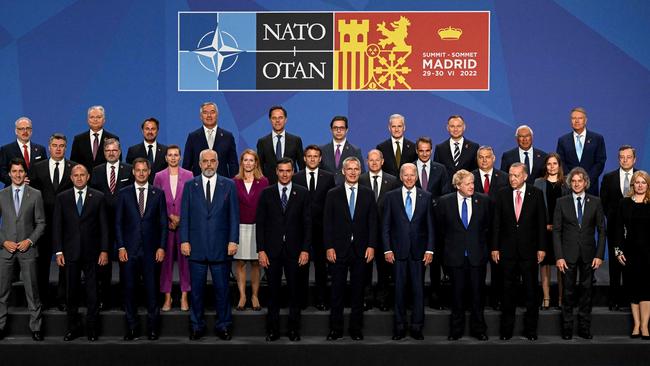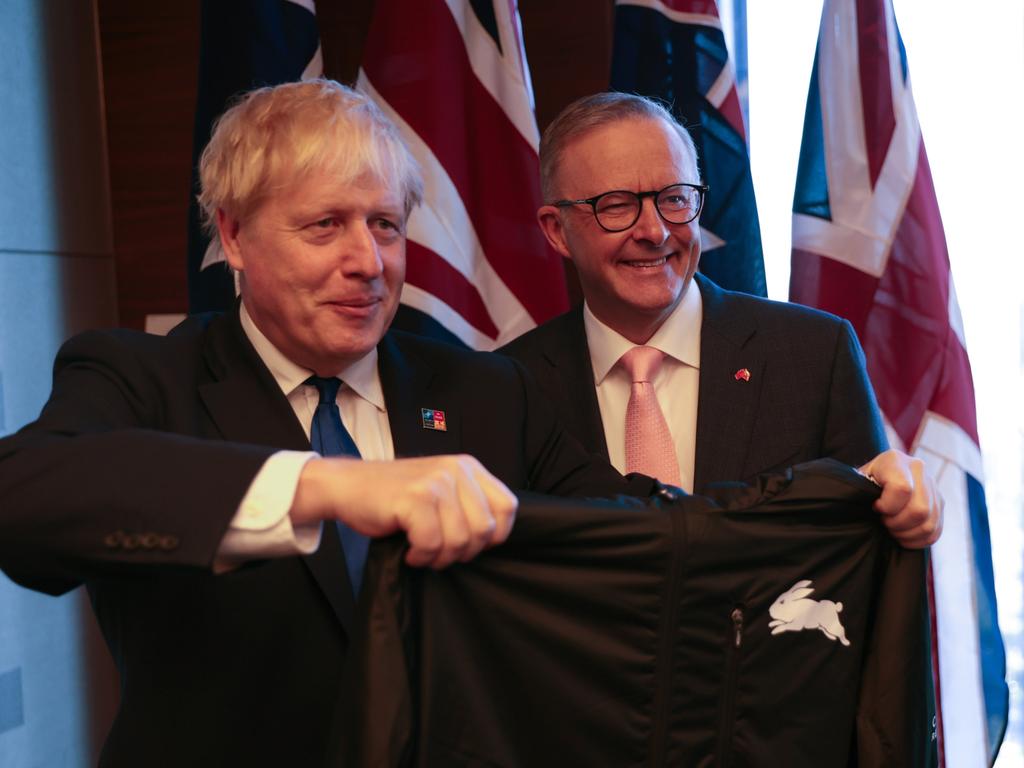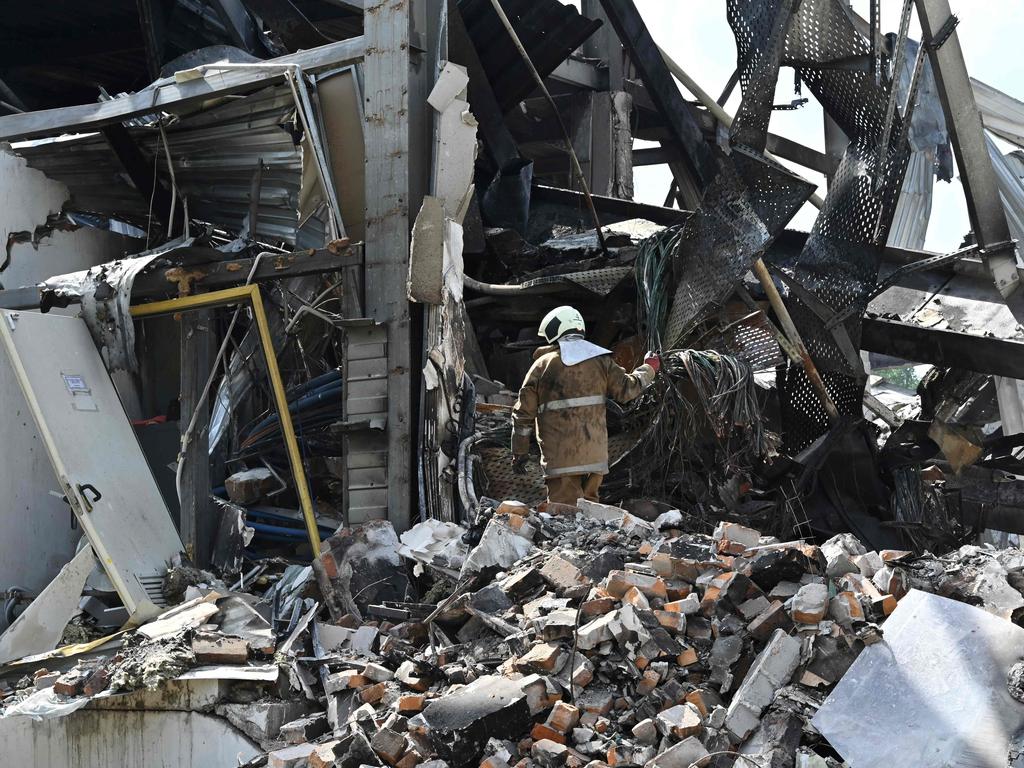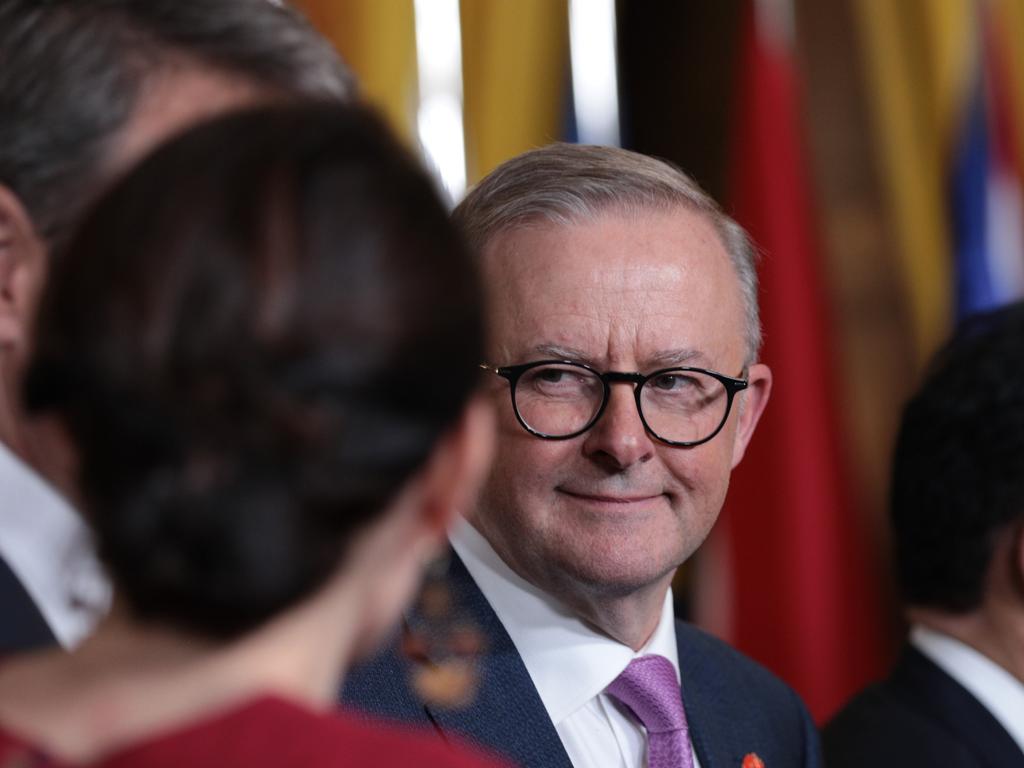NATO declares China a security threat
The 30-member alliance warns China’s ambitions and coercive behaviour ‘challenge our interests, security and values’.

NATO has for the first time declared China as a security threat, warning its ambitions and coercive behaviour “challenge our interests, security and values”.
The 30-member alliance’s new ten-year strategic blueprint calls out China over its “malicious” cyber operations, its strategic partnership with Russia, its efforts to dominate key supply chains, and its rapidly expanding nuclear arsenal.
It says Russia’s “brutal and unlawful invasion” of Ukraine has “gravely altered our security environment”, and recommits the alliance to collective defence “against all threats from all directions”.
The updated “Strategic Concept”, endorsed at the NATO summit in Madrid late on Thursday AEST, replaces a 2010 document that did not mention China and said Russia was a “strategic partner”.
“The People’s Republic of China’s stated ambitions and coercive policies challenge our interests, security and values,” it says.
“The PRC employs a broad range of political, economic and military tools to increase its global footprint and project power, while remaining opaque about its strategy, intentions and military build-up.
“The PRC’s malicious hybrid and cyber operations and its confrontational rhetoric and disinformation target allies and harm alliance security.”
China reacted swiftly, saying NATO should “stop trying to mess up Asia and the world after messing up Europe”.
“They should also stop trying to launch a new Cold War. What they should do is give up their Cold War mindset, zero-sum games, and stop doing things that create enemies,” Chinese Foreign Ministry spokesman Zhao Lijian said.
But Anthony Albanese warned China to heed the lessons of the Ukraine conflict and distance itself from Russia.
“China must look at what is happening, look at the result that is there throughout the world, and should be condemning Russia’s actions,” the Prime Minister said on the sidelines of the summit.
Earlier, Mr Albanese told NATO leaders that Beijing and Moscow shared a “lack of democratic values”, and declared the two nations’ increasing closeness of posed a risk to all democracies.
“Just as Russia seeks to recreate a Russian or Soviet empire, the Chinese government is seeking friends, whether it be … through economic support to build up alliances to undermine what has historically been the Western alliance in places like the Indo-Pacific,” he told a NATO gathering on Wednesday.
Mr Albanese said Australia was a victim of Chinese “economic coercion”, and urged democratic leaders to diversify their trade relationships to avoid a similar fate.
As the summit got underway, Mr Albanese met with his Japanese, South Korean and New Zealand counterparts – known as the ‘Asia Pacific Four’ – declaring the nations were “not distant from the challenges” being faced in Europe.
“The events in Europe have real and significant implications for our own region of the Indo-Pacific, just as the actions in the Indo-Pacific affect European nations,” he said before the closed-door meeting.
“Only by working together can partners offer a real choice … in the region and take tangible steps to promote, peace, stability and prosperity for the Indo Pacific.”
Japanese Prime Minister Fumio Kishida said the invasion of Ukraine had shaken the foundations of the global order.
“The security of Europe and the security of the Indo-Pacific cannot be decoupled,” Mr Kishida said.
NATO’s new Strategic Concept warns authoritarian regimes “challenge our interests, values and democratic way of life”, interfering in democratic processes and testing nations’ resilience.
It calls out both Russia and China over their investment in sophisticated conventional and nuclear missile capabilities “with little transparency or regard for international norms and commitments”.
The document also singles out China for its efforts to control key technologies, critical infrastructure, and strategic materials.
“It uses its economic leverage to create strategic dependencies and enhance its influence,” the strategic blueprint says.
“It strives to subvert the rules-based international order, including in the space, cyber and maritime domains.”
NATO Secretary-General Jens Stoltenberg reflected “a new reality” for the alliance.
“China is not an adversary but, of course, we need to take into account the consequences to our security when we see China investing heavily in new modern military capabilities, long range missiles, nuclear weapons, and also trying to control critical infrastructure, for instance, 5G networks in our own countries,” he said.








To join the conversation, please log in. Don't have an account? Register
Join the conversation, you are commenting as Logout